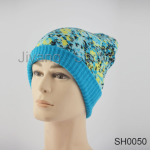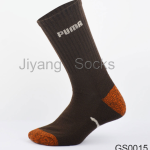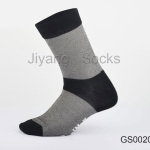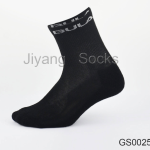Compression Sock
Typically prescribed for elderly adults with medical problems, compression socks are sometimes ignored by other populations. Thus, few people realize that compression socks can actually help many different types of people.
If you are an athlete, traveler, or someone who has to stand for long periods of time, compression socks might help alleviate some of the foot and lower leg pain you experience. Consistently being on your feet for several hours puts a lot of pressure on your lower limbs. This can lead to the development of varicose and spider veins- and no one wants those! Read through the information on compression socks and see if you could benefit from wearing them. We bet you¡¯ll be surprised what you learn!
Who should wear compression sock
Compression socks aren¡¯t just for the elderly or those with health problems. The benefits of wearing compression socks make them an important part of many people¡¯s wardrobe.
If your job, or a specific event, requires you to be on your feet or sit without movement for extended periods of time, than compression socks are for you! If you play sports, or run or bike long distances, compression socks will help you achieve maximum leg muscle efficiency and aid in muscle recovery post workout. Also, if you¡¯re pregnant and experiencing lower leg swelling, you may want to talk to you doctor about compression socks.
Finally, people who suffer from a variety of medical conditions should also wear compression socks to help ease leg and foot symptoms.
Symptoms and conditions include:
o Lipodermatosclerosis
o Swelling
o Varicose veins
o Chronic venous insufficiency
o Peripheral edema
o Lymphedema
Also, those who want to prevent deep vein thrombosis and post-thrombotic syndrome should wear medical compression socks.
Nurses
Nurses often work shifts as long as 12 hours a day, spending the majority of the time on their feet. All this standing can cause nurses to experience leg and foot pain, even after their shift is over. Over time, nurses also tend to develop unattractive varicose veins and spider veins as a result of being on their feet for extended periods of time. It is advised that nurses start wearing compression socks or stockings early in their careers, before problems have a chance to develop. Luckily, there are many good options for nurses, including knee-high compression stockings and full-length stockings.
Travelers
If you frequently take long road trips or flights, you should consider wearing compression socks before you embark on your trip. Besides being uncomfortable, sitting in a cramped car seat or packed into an airplane¡¯s economy class can cause blood clots to form in your legs from lack of movement. Compression socks are especially important when you are on a flight that is eight to ten hours or longer because there are no opportunities to pull off at a rest stop and walk around. While the clots people develop while traveling usually dissolve on their own; however, there is the possibility that a blood clot in your leg could travel through your body having devastating medical consequences.
Athletes
As athletes push themselves, they fatigue their muscles. As a result of breathing harder and cellular respiration, lactic acid can build up in the muscles. To avoid a build-up of lactic acid which can lead to muscle soreness, it is important to wear compression socks which help increase blood flow and bring fresh oxygen to the muscles. Many athletes claim that compression socks help aid muscle recovery after a game or practice. By wearing them when they are resting or before going to bed, the muscles will continue to receive fresh oxygen despite being dormant. An additional benefit of compression socks is that they help to prevent shin splints.




